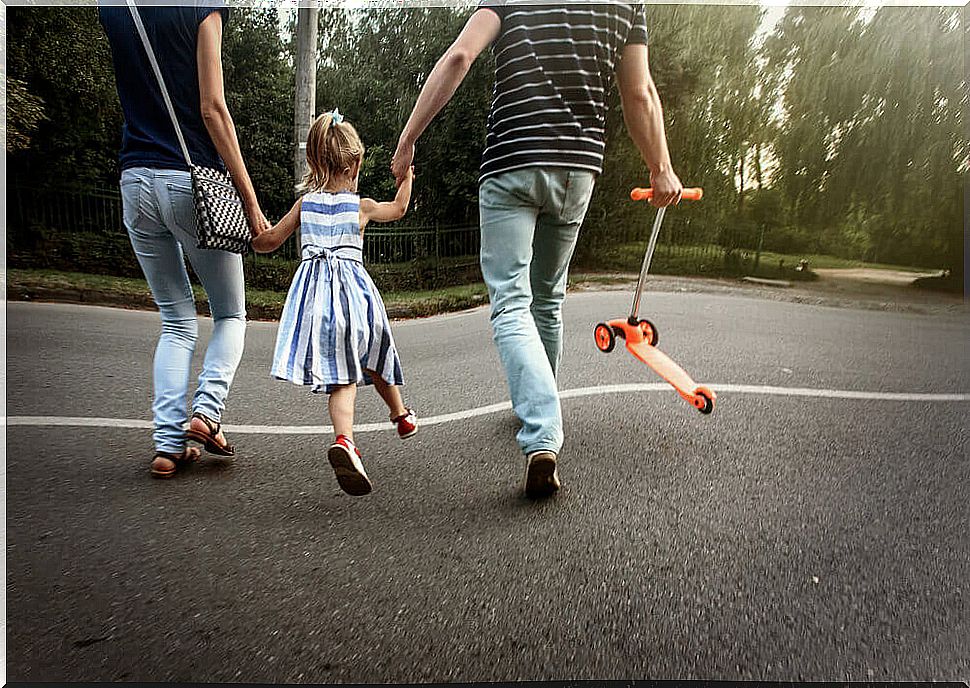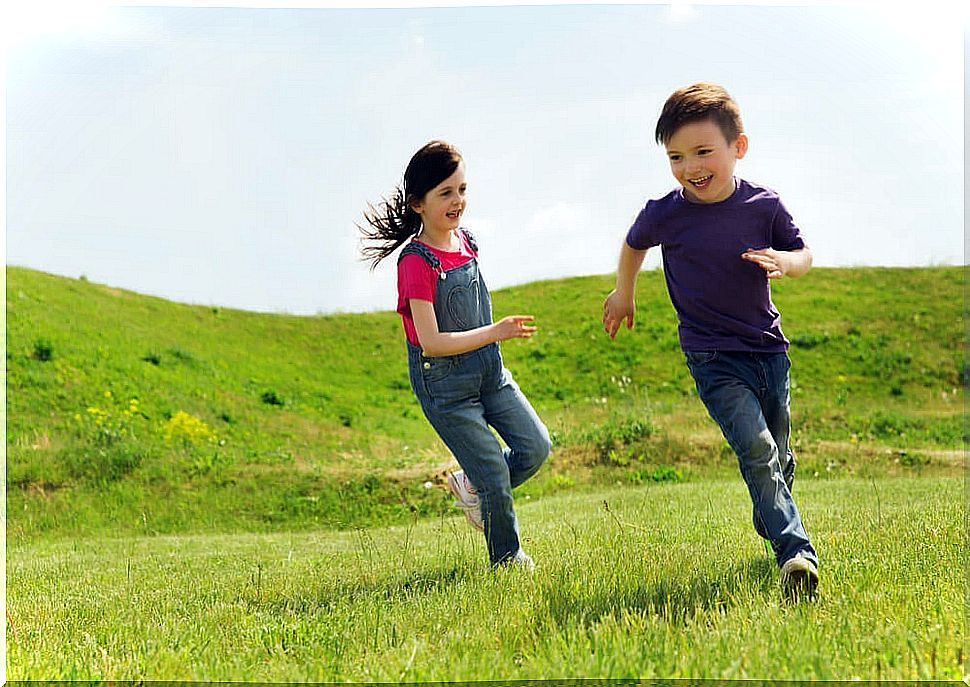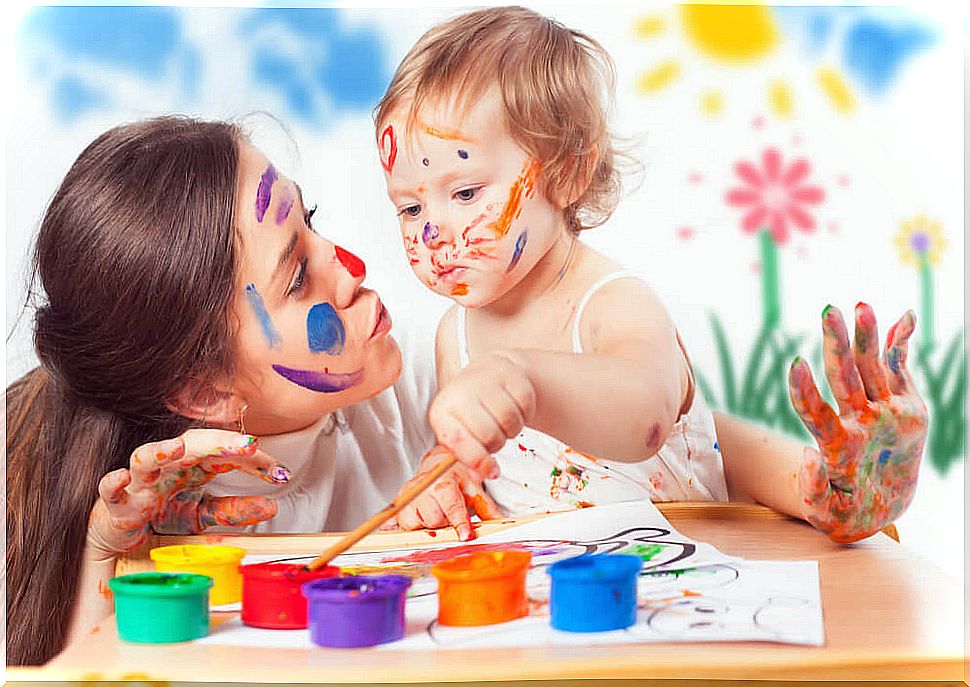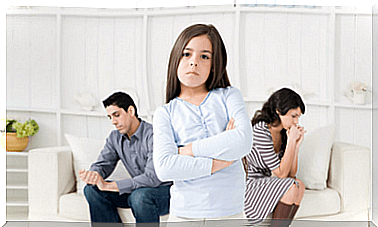What If Children Are Afraid To Go Outside?

We seem to be doing things right; We have taken another step in the war we are waging to defeat the coronavirus (COVID-19). Proof of this is that, little by little, and with certain restrictions, both adults and children begin to leave the quarantine behind and we can leave our homes. Now, what happens if children are afraid to go outside?
From the habit of quarantine to getting used to going out on the street again
We’ve been around long enough for many of us to get used to being in quarantine. And, considering that a custom is a habit or tendency acquired by the frequent practice of an act, we are doing our homework very well. With which, now that we can go out little by little, we must get used to another daily routine again.
In this sense, on a psychological level, this crisis situation caused by the coronavirus affects us all in many ways. And, as some psychologists point out, like many adults, many children have become accustomed and have accepted the confinement situation as normal.
So, families must, little by little, leave behind the chaos, organized, but ultimately chaos, of a life confined within the home, and go from a certain time flexibility for almost everything to reorganize and structure the day, considering the time restrictions and the necessary precautions to be able to leave.

However, in the case of the little ones, adapting to this new situation may not be easy. In the same way that it was not simple for them, when the state of alarm began, to get used to being at home without being able to go out to go to school or the park.
Therefore, adults must be able to help the little ones to get used to the new situation. For this, they must be patient and try to know and understand the reasons why some children may be more reluctant, or with some fear, to go out.
Why are children afraid to go out on the street?
That some children, now that they can go out again, have and express fear of doing so, may be due to many reasons.
- Believe that they can infect themselves or members of their family.
- Know that even though they can go out, they won’t be able to get too close to their friends or neighbors, or even play in the parks.
- Being aware of the greater presence of the police or military forces in the streets, a situation that causes, in some children, feelings of respect or repair.
- Having to get out of your comfort zone, being at home and with family.
What can we do to prevent children from being afraid to go out on the street?
Parents must take into account some precautions, and use some strategies so that the little ones, progressively, can gradually regain normalcy that has been interrupted by the presence of the coronavirus in their lives.
First and foremost, and most importantly, do not force anything to avoid causing anxiety. Second, we must listen to them and try to understand their reasons why they do not want, or cannot, go out on the street.
To make it easier for children to adapt to the new situation of going out, we can:
- Explain and show them the positive side of leaving home. Talk to them about the need for their body and mind to be in the sun, and about the benefits of this to grow and to have more strength to be able to continue playing.

- Appeal to your imagination. Open questions to them about everything new that can be found when they go out again. Remind them that they have not done it for a long time, that things change and that they can find wonderful surprises.
- Arouse their illusion and curiosity. Encourage them to meet their friends and neighbors, with whom they will surely have a lot to talk about, and tell each other all the anecdotes and activities they do at home, with the family during quarantine, but always maintaining a safe distance.
- Make the exits gradually. Although we are allowed to go out with our children every day, it is best to do it gradually. And, if a child expresses certain fears, listen to them and only go out on the days when they feel most animated.
- Be cautious with the information we provide them about the virus. Of course, children should know and respect the guidelines they have to follow to avoid contagion when they go out, but they should not feel overwhelmed by too many and constant recommendations and instructions.
Finally, what not to do …
We are going through very complicated times, and the consequences that this pandemic will leave us at any level (social, economic, personal, emotional, psychological, etc.) are still unknown.
It is inevitable that we all have fears and a feeling of uncertainty constantly invades us, but adults must make the effort and pay attention to the little ones to help them manage their emotions and, mainly, their fears.
Thus, to avoid feeding the feeling of fear that our children may have to go out, it is essential to avoid talking all the time about the virus. We must avoid that children are constantly exposed to information and conversations on the subject, and try to be enthusiastic to talk with children about how wonderful it is to be able to go outside to play and have fun.










